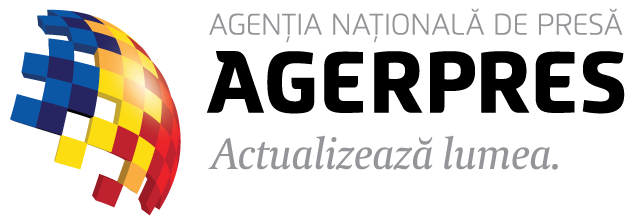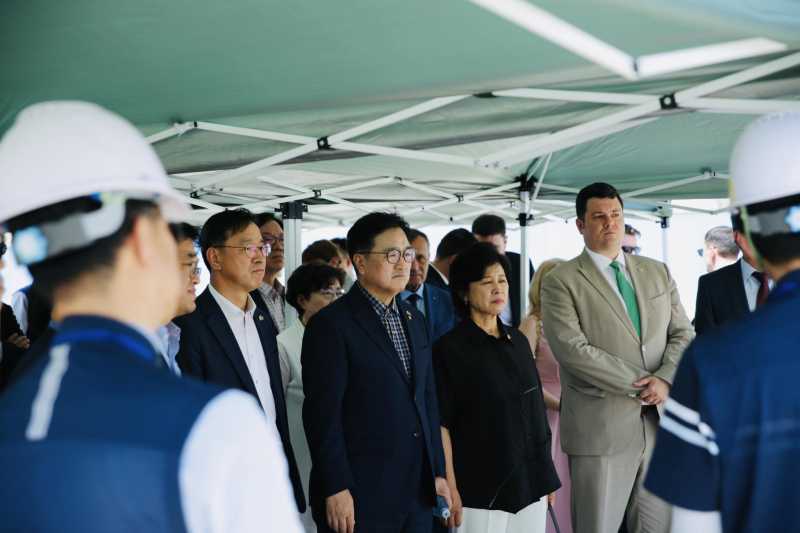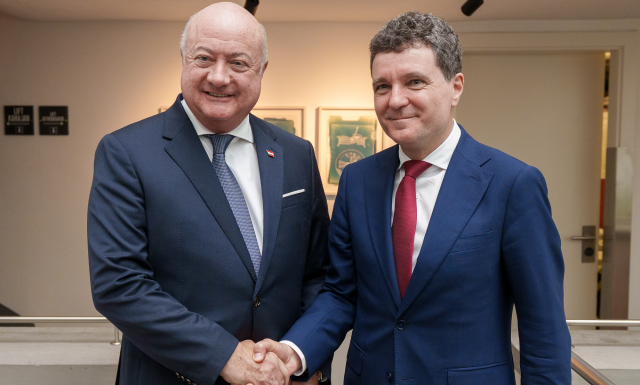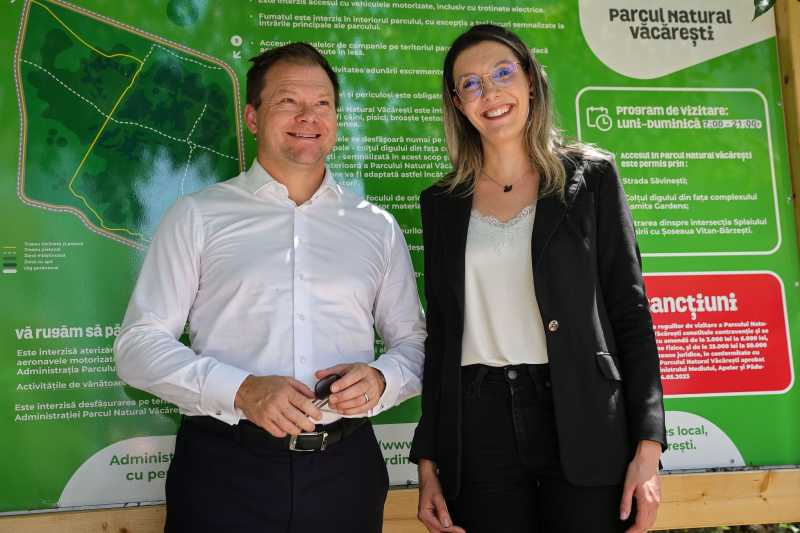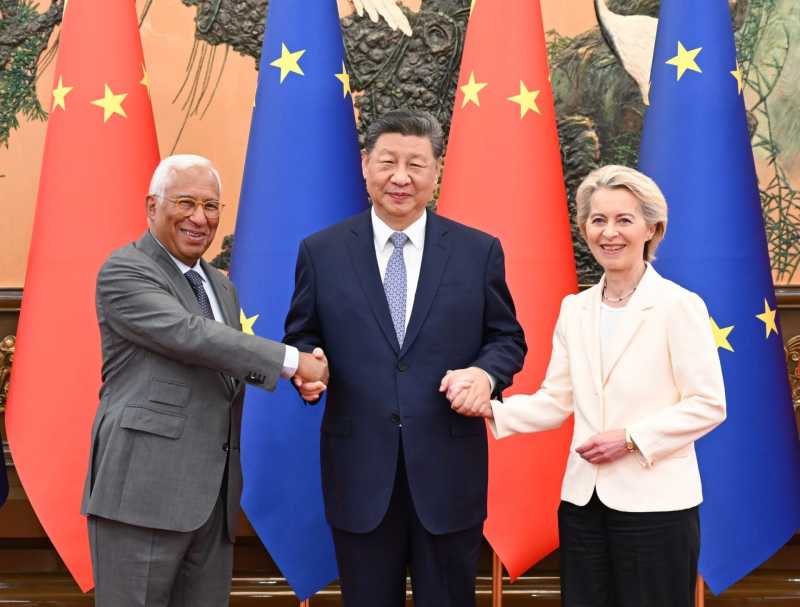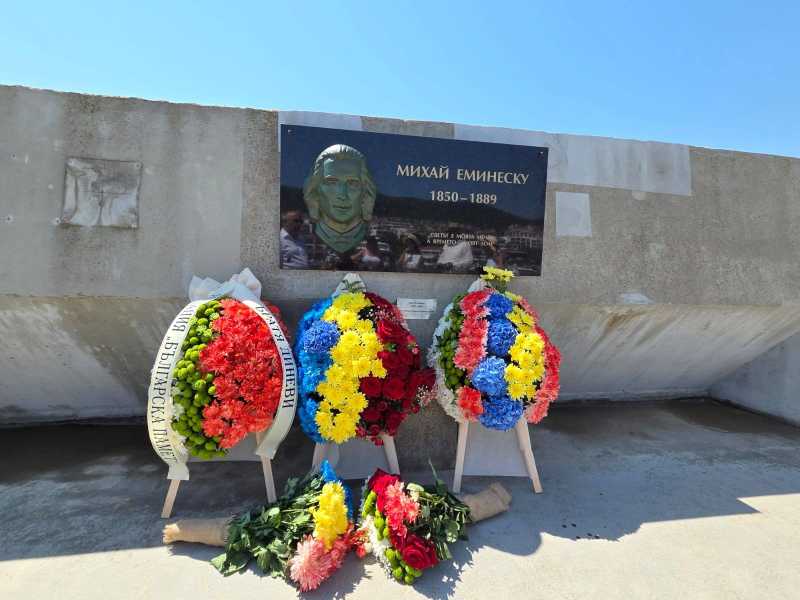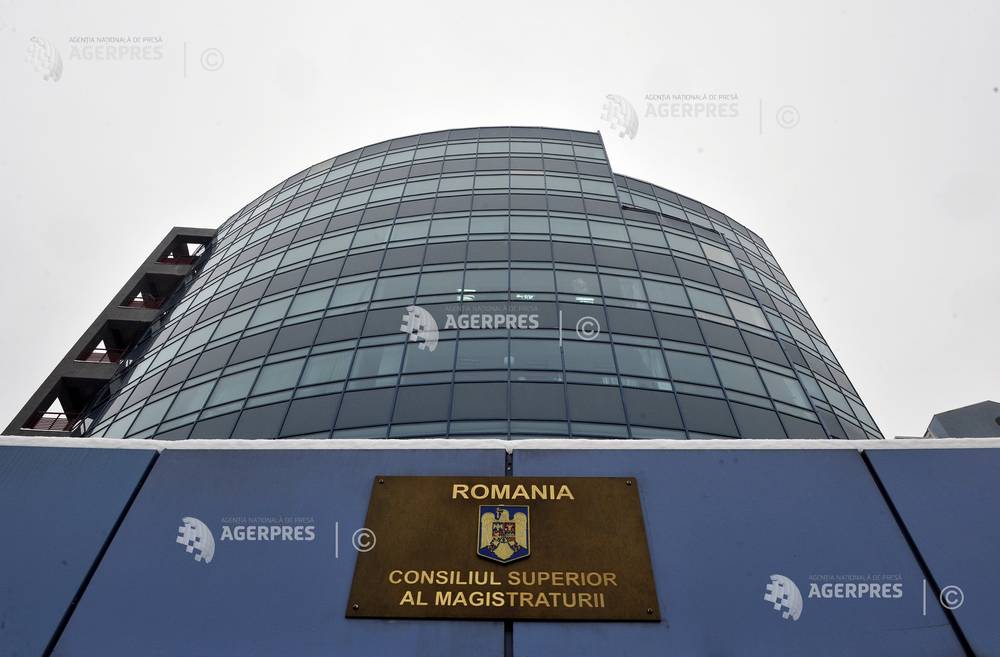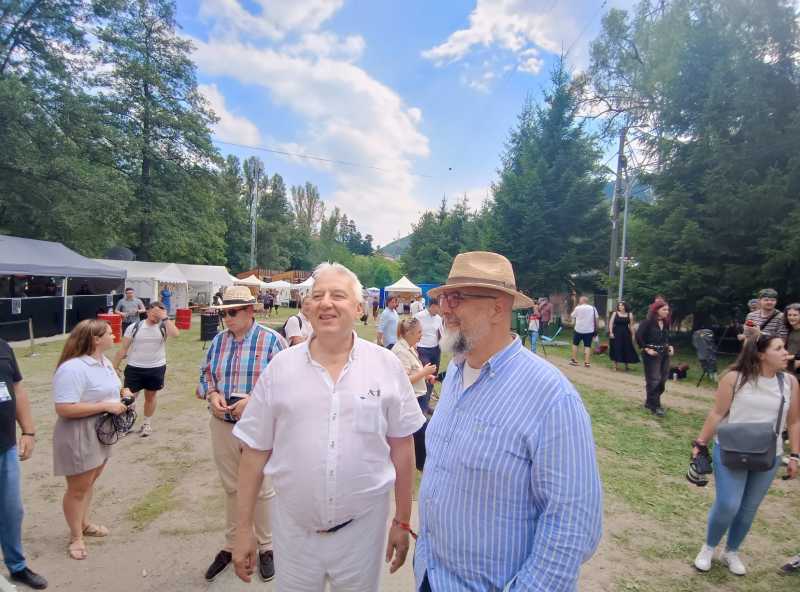Romania's media professionals discuss how Romania adapt legislatively to Media Freedom Act
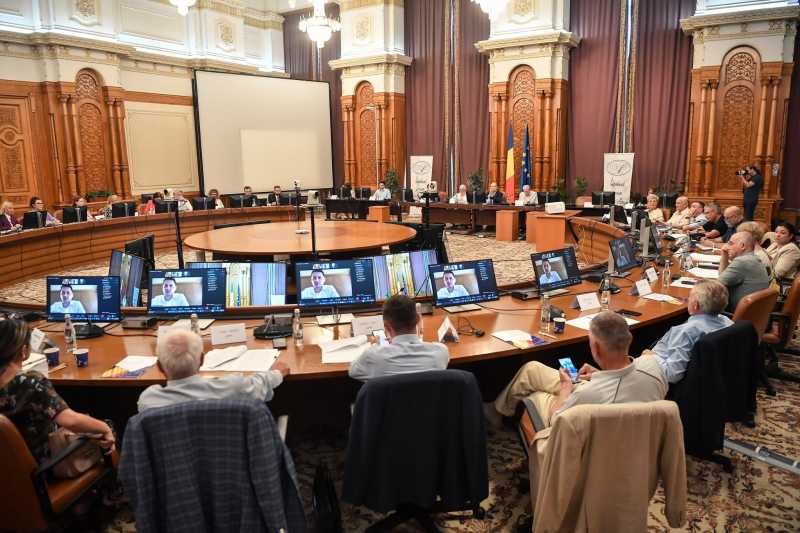
The Union of Romania's Professional Journalists (UZPR) on Thursday organised a conference on the Media Freedom Act and its challenges and perspectives for media freedom in Romania, amid the implementation of the European Regulation on Media Freedom, Media Freedom Act.
The participants - state officials, lawmakers, journalists, experts - were of the opinion that passing and implementing the European Media Freedom Act (EMFA) is an essential step for the consolidation of democracy, transparency and journalistic independence in Romania.
The regulation, which becomes binding in the European Union from August 8, lays down obligations on transparency of media ownership and public funding for media outlets. This will allow the public and authorities to better understand who is influencing the discourse and how resources are allocated. EMFA also introduces rules to protect journalists from abusive surveillance and intimidation, as well as to protect sources.
Given the circumstances, the need for Romania to pass legislation in line with the new regulations was emphasised.
The event, hosted by Parliament Palace, was opened by UZPR Chairman Sorin Stanciu, and moderated by journalists Ruxandra Sararu and Andreea Cretulescu, members of the organisation's board of directors.
Journalist Sararu highlighted the main purpose of the European regulation - to guarantee freedom of expression. 'Next to us are the main actors in the academe and we want these actors to be our basic partners in this legislative approach,' she said.
Senate Chairman Mircea Abrudean announced that he will support legislative initiatives that promote policies to protect journalists and media freedom. He added that freedom of the media is essential in a democracy, especially in the current national and international context, characterised by multiple challenges of instability, social crises and economic crises.
'Freedom of the media should not be perceived as a privilege but as a fundamental right - the right to be informed correctly and honestly, of course completely. We all have a responsibility to guarantee respect for the truth and transparency in decision-making, so that free media can effectively contribute to ensuring a better future for our citizens. Romania aligns itself with the standards of the European Union in conveying the clear message that free, independent and transparent media is the key to a functioning democracy. (...) I believe that we have to make sure that the mission of the media is to inform the public independently and correctly. It must not be controlled in any way by economic or political interests. Moreover, it is important for all of us to benefit from the professional media, which responsibly assumes to inform correctly and to present the truth and to provide information of public interest, while also contributing to the fight against fake news, so much propagated in the public space nowadays. Therefore, there is a need to ensure transparency in relation to the sources of funding, avoiding conflicts of interest. (...) The media should not be comfortable for politicians,' Abrudean said.
Chairman of the Education Committee of the Chamber of Deputies Alexandru-Mihai Ghigiu said that the theme of the conference, challenges to and prospects for media freedom in Romania, is not only topical, but also essential to the future of democracy in the country.
'Although guaranteed by various legal acts, both domestic and European or international, we see that freedom of the media in general faces pressures of different kinds, either economic pressures, or pressures from the political factor, or pressures in an increasingly complicated global context. I believe that this regulation has the mission, the purpose of trying to protect journalists in doing their job as correctly as possible, to inform and to disturb. (...) I believe that education has an essential role if we want this regulation to go beyond paper, to become a reality in Romania,' Ghigiu said.
According to Chairman of the Judiciary Committee of the Chamber of Deputies Bogdan Ciuca, the Media Freedom Act represents a strong signal, a public pledge to values at the level of the European space.
'The voice of journalists must be free, and their freedom must be strengthened and respected. How? Obviously, through a piece or several pieces of legislation, through a correct interpretation of the legislation. The journalists should feel protected in their activity in order to have, obviously, an efficient and useful journalistic product for society. A free media is not a democratic whim, or a fad to be ticked off, (...) but it is a true barometer, a true barometer of a society and of the moral state of a society. This concern and this barometer must work permanently, constantly, not in waves. A piece of legislation shows up, we relate to it and then we forget about it. (...) The Judiciary Committee is permanently open for actions and activities of the world of professional journalists or those who have topics that target the fundamental values that we forget too often,' the MP said.
Chairman of the Senate Committee on Culture and Media Cristian Niculescu-Tagarlas said that implementing the Media Freedom Act is a necessity that starts from the force of a regulation adopted by the European Parliament and the European Council, respectively. According to him, it is necessary to transpose it into national legislation.
'I can assure you that you will have my full support, because I start from this perspective of the constitutional need to respect the independence and freedom of the press and to protect journalists. On another note, pragmatically speaking, we have an audiovisual law that has tacitly passed in the Chamber of Deputies and is under debate and the debate will have to be resumed, also in relation to these European regulations, in the Senate. That is why I am asking the leadership of UZPR and all interested journalists to participate in September when we will resume the debates on the Audiovisual Law, because it is a key to democracy and a key to the way journalism manifests itself in Romania (...) Without communication from the governmental, political, parliamentary space, all the measures that we, the politicians, want to take - starting from the notion of good faith - if they are not communicated correctly and pragmatically enough, fall into ridicule,' the senator said.
Media freedom is not just an abstract principle, but a concrete guarantee of the functioning of a democratic society, and Romania is responsibly committed to its membership in the European Union, according to Ministry of Culture's Alexandra Preda.
'Romania has both the legal and moral responsibility to secure a consistent legislative and institutional framework, stable and in full consonance with the European Union acquis. The Ministry of Culture, by its powers in the field of audiovisual and media, firmly supports the full implementation of this regulation and will support all steps that ensure the editorial independence of the media, the protection of journalistic sources, the transparency of media ownership, the guarantee of pluralism and the fight against political interference in the functioning of press institutions. We have the opportunity, through this regulation, to strengthen the legal safeguards against undue pressure on journalists and newsrooms and to strengthen the role of independent authorities as an active part in supporting freedom of expression. The challenges are real, from technological developments to the polarisation of public discourse, but they too must be met with modern, solid tools adapted to current realities,' said Preda.
Rector of the Bucharest Polytechnic University Mihnea Costoiu highlighted the importance of media freedom.
'We have been working for some time, not alone, but in broader associations, together with colleagues from technical universities, for several years, on working mechanisms in the digital area, including online platforms, with partners from both Europe and the United States. (...) What has happened in recent years - and I am not talking here only about the elections of the last two years or this year, last year in Romania, but we are also talking about what happened a few years ago, with the explosion of digital platforms and the use of artificial intelligence behind these platforms, that, in fact, there is the major difference. We must understand that, when we talk about the media, whether we like it or not, we must accept that influencing public opinion, without wanting to offend the media at all, is no longer the exclusive responsibility of one journalist or another, regardless of the notoriety, prestige, trust, value of the person or, respectively, of the trust, but, as we see, influencing public opinion occurs in the digital area, sometimes more so, with tools that, most of the time, remain, if not alien, little known to this area,' said Costoiu.
Director General of the National News Agency AGERPRES Claudia Nicolae drew attention to the way of quantifying the work of journalists in public media organisations, saying that there is a legislative blockage in this case.
'There is probably a legislative blockage in public media organisations. And I tell you from the perspective of AGERPRES, which is neither under the jurisdiction of the National Audiovisual Council (CNA) nor under the jurisdiction of the National Authority for Management and Regulation in Communications of Romania (ANCOM), it has a law that, indeed, if we sit and read it, provides for absolutely every paragraph of the regulation presented today, that is, we are under an obligation (...) to publish on a transparent website all the provisions. (...) All wages are transparent to other public institutions, because AGERPRES journalists are paid under the Uniform Pay Law. And, it's a problem, if you ask me from the point of view of a journalist, can we quantify the effectiveness of journalism? How do we quantify it? Because there is no regulation and no provision to support us. Many people know, I went everywhere with this approach,' said Nicolae.
She added that AGERPRES, before the public information mission, has the mission of providing information to the media in Romania and the media abroad.
'You can't say which journalist is performing, which journalist is not performing. How do I make a difference? We can say, yes, through the job description, but how do we do the payroll? The job description does not help us. There are certain legislative blockages, which we should think about first of all in the law on the operation of each institution. and I gave you the case of AGERPRES. We only have parliamentary control. If we have a problem and we go to an institution to support us, the Ministry of Culture tells us that we are not under its jurisdiction, CNA that we are not under its jurisdiction, and ANCOM that we are not under its jurisdiction, Parliament coordinates us,' said the AGERPRES director general.
Razvan Savaliuc, representative of the Romanian Press Club, said that Romania, as an EU member state, must make sure that journalists will receive fair treatment from the state. 'The role of the journalist is to criticise the authorities. Or, if we read from the preamble, the Media Freedom Act proposes clear measures against government interference in editorial activity. (...) If member state Romania is under an obligation from the European Union to designate a press control body, it should be an independent body, in no case a public body,' he said. AGERPRES (RO - editing by: Catalina Matei; EN - writing by: Corneliu-Aurelian Colceriu)
The content of the www.agerpres.ro website has the exclusive purpose of public informing.
All the information published on this website by AGERPRES is protected by relevant legal dispositions.
It is forbidden to copy, reproduce, recompile, decompile, distribute, publish, display, modify, create derived components or products or full services, as well as any exploitation of the site's content.
Details in the section Terms of Use. If you are interested in picking up AGERPRES news items, please contact the Marketing Department – [email protected].
The use of the Comments section entails your obligation to respect the AGERPRES terms and conditions in regards to the publishing of comments on the www.agerpres.ro.
Other news in category
South Korea's Speaker, ambassador visit Cernavoda Nuclear Power Plant
Speaker of the National Assembly of the Republic of Korea, Woo Won-shik, South Korean ambassador to Romania Rim Kap-soo, as well as high-level representatives of utility provider Korea Hydro & Nuclear Power (KHNP) visited on Saturday the Cernavoda Nuclear Power Plant, the facility's operator - national nuclear power company Nuclearelectrica announced.
President Dan meets Austrian Chancellor Stocker, underscores Danube Strategy's merits as economic cooperation opportunity
AGERPRES special correspondent Oana Ghita reports: President Nicusor Dan met on Saturday in Salzburg with Austrian Chancellor Christian Stocker. At the beginning of the meeting, the Romanian president thanked the head of the Austrian government for the invitation, stating that 'following the Schengen-related situation', the two countries should work together and forg
At meeting with Austrian counterpart, Foreign Minister Oana Toiu highlights existing economic cooperation potential
Minister of Foreign Affairs Oana Toiu highlighted during a meeting on Friday with her Austrian counterpart Beate Meinl-Reisinger the existing potential for economic and investment cooperation, as Austria is among the top three foreign investors in Romania, the Foreign Ministry informs in a release. ForMin Oana Toiu and Austria's Beate Meinl-Reisinger met o
Anastasiu: I did not file complaint in ANAF corruption case
Deputy Prime Minister Dragos Anastasiu claims that he did not sign or file a complaint in the corruption case against some ANAF officials and requests a copy of the 'alleged complaint' from the DNA. 'In order to clarify in the public space my quality as a witness in the file regarding the corruption acts of some ANAF officials, I sent a written req
EnviMin presents Vacaresti Natural Park to her German counterpart
The Minister of Environment, Waters and Forests, Diana Buzoianu, presented, on Saturday to the Federal Minister for the Environment, Climate Protection and Nuclear Safety, Carsten Schneider, who was on a visit to Romania, the Vacaresti Natural Park, a symbol of urban reconnection with nature, according to a post on a social network of the relevant ministry.
Austria's president: Black Sea gas exploitation will hopefully calm the situation in Europe
AGERPRES special correspondent Oana Ghita reports: The exploitation of the Black Sea natural gas through the Neptun Deep project will produce large-scale effects for Europe, Austrian President Alexander Van der Bellen declared on Friday during a joint press conference with visiting President Nicusor Dan. 'Austria is very interested in the Romanian market,
EU and China mark 50 years of diplomatic relations as trade and climate tensions loom (enr)
As the United States increasingly turns its back on Europe, the EU and China seek to draw closer. Trade tensions, Russia's war in Ukraine and the pursuit of joint climate change ambitions however thwart progress. The European Union and China celebrated 50 years of bilateral diplomatic relations at a high-profile summit in Beijing on Thursday. But many cont
President Nicusor Dan welcomed at Salzburg Residenz by his Austrian counterpart
AGERPRES special correspondent Oana Ghita reports: President Nicusor Dan was welcomed on Friday at Salzburg Residenz by President of the Republic of Austria, Alexander Van Der Bellen. The two heads of state are scheduled to hold one-on-one talks, followed by official talks between the delegations. Joint press statements are expected at the end.
German Environment minister assures of his country's support for Romania's OECD bid
Germany will support Romania's efforts to join the OECD, as this is one of its most important partner countries in Europe, but particularly in this region, visiting Federal Minister for the Environment, Climate Action and Nuclear Safety Carsten Schneider declared on Friday in Bucharest following a bilateral meeting with his Romanian counterpart Diana Buzoianu.
Bas-relief honoring Romanian poet Eminescu unveiled in Bulgarian seaside resort Sveti Vlas
The ambassador of Romania to Bulgaria, Brandusa Ioana Predescu, and the ambassador of Bulgaria to Romania, Radko Vlaykov, unveiled a bas-relief of the Romanian poet Mihai Eminescu on the Alley of Nations in the seaside resort of Sveti Vlas, Bulgaria's BTA national news agency reported on Friday. Among the official guests were Stefania Berciu-Martac, Honora
Judicial independence watchdog says trust in Romanian judiciary in line with EU average
The Supreme Council of Magistrates (CSM) reported on July 24, citing a European survey conducted for the year 2025, that in Romania, trust in the judiciary continues to keep within the EU average. According to a CSM release, the companies' perception regarding the independence of the judiciary is positive at a rate of 51%, similar to that of 2024 (52%), pl
President Dan on alleged Ukrainian military planes overflying Romania: It's totally false
Romania's President Nicusor Dan said on Friday, when asked about Russia's allegations that Romania would have allowed Ukrainian military planes to fly over its national airspace, that they are 'totally false', mentioning that he has all the information and 'that did not happen'. 'It's totally false, I have all the information an
PM Bolojan meets speaker of the National Assembly of the Republic of Korea, Woo Won-shik
Prime minister Ilie Bolojan on Friday had a meeting at the Victoria Palace with the speaker of the National Assembly of the Republic of Korea, Woo Won-shik, who is currently paying an official visit to Romania, accompanied by an official South Korean delegation. According to a press release of the government, during the talks, the two high officials emphasised
Sibiu: Pediatric Hospital offers new service, genetic test for detecting lactose intolerance
The Pediatric Clinical Hospital in Sibiu is introducing a new medical service addressed to children who present frequent digestive symptoms - the genetic test to identify lactose intolerance, which is free of charge for hospitalized patients, according to an announcement published on a social network. According to hospital representatives, 'this special in
Deputy PM Zsolt: Our policy towards Romania is determined by what UDMR says
The deputy prime minister of Hungary, Semjen Zsolt, on Thursday afternoon stated, at a debate organized at the Summer University in Baile Tusnad, that Hungary's policy towards Romania is defined by what the UDMR (Democratic Union of Hungarians of Romania) says and no political gesture is made from Budapest to the detriment of Hungarians abroad. 'As for
